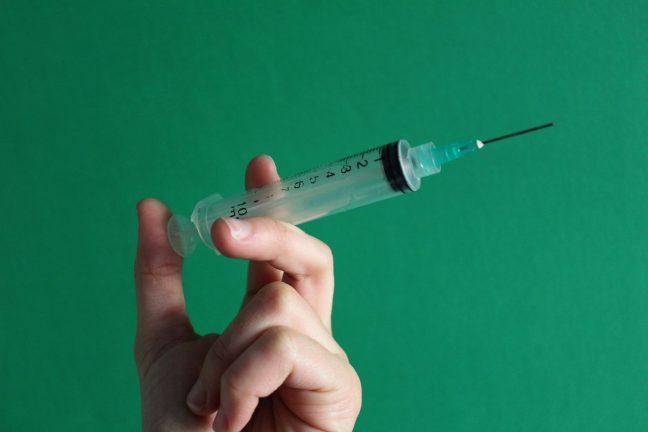Rep. Gordon Hintz, D-Oshkosh, introduced a package of three bills Jan. 17 that would ultimately make vaccines more accessible to Wisconsin residents.
The first bill in the package would deem Wisconsin a universal vaccine purchasing state, the second would allow dentists to administer vaccines under specific training criteria and the third bill would allow a minor aged 16 or older to make their own choices regarding being vaccinated, according to Hintz’s press release.
“If we increase access to vaccines, we will increase immunization rates in Wisconsin, and that is a win for the health and well-being of our state,” Hintz said in the press release. “We need to do all we can to increase vaccination rates in order to avoid a completely unnecessary outbreak in Wisconsin.”
According to the press release, these bills are a result of many conversations with experts in public health who all agree the best thing the state can do, in addition to removing the personal conviction waiver, is to create more access points for vaccination.
In regards to partisan support, Brett Halverson, a staff member who works closely on bills with Hintz, said two of the three bills have a Republican cosponsor, while one only has Democrat cosponsors. Halverson said Hintz originally circulated a bill regarding vaccinations in May, but it was not implemented.
“Our goal was to increase immunization rates across the state, so we were looking at other ways to do that,” Halverson said. “After speaking with stakeholders and experts in medicine and in the field of immunizations, we came up with these three bills, which are things that have been done in other states and are incremental ways to increase access to vaccines.”
Wisconsin is currently one of only 18 states that allows parents to exempt their children from receiving vaccinations due to personal reasons. Additionally, opt-out rates for vaccinations are five times higher now than they were during the 1997-1998 school year, according to Hintz’s website.
With one of the broadest exemption rates in the country, Wisconsin is a potential high-risk area for vaccine-preventable diseases. Yet, parents in Wisconsin may still opt-out their children from vaccines due to medical, religious and personal reasons with no restrictions, according to Hintz’s website.
According to Patrick Kelly, a doctor at UHS, Vaccines are highly important because they have the potential to save lives from a multitude of diseases.
“Vaccines, still to this day, are probably the things that have saved the most lives and prevented the most deaths in terms of our public health actions, so just from a sky level view of this — vaccines save lives,” Kelly said.
Experts say vaccines central to public health, while fallacies must be dispelled
For college students, Kelly recommends students receive the influenza, meningococcal and human papillomavirus vaccinations.
In the future, UHS, backed with the support of Chancellor Rebecca Blank and the UHS executive director Jake Baggott, hope to make certain vaccinations a requirement for incoming freshman, Kelly said.
“Right now we don’t require any specific immunizations, but we [UHS] are looking to implement a policy where all incoming first-year students would need to have documented, a set of basic immunizations, and so that will be for the future; we’re looking ahead to at least in the fall semester,” Kelly said.
UHS has administered around 16,000 influenza vaccines, according to Kelly. If students wish to receive immunizations on campus, they can make an appointment through MyUHS to visit the immunization clinic on the green side of the sixth floor of UHS. Additional information about which vaccines one can receive is available on the UHS website.
Kelly said because UHS does not bill students through insurance, the vaccines do come at a certain cost. But Kelly said there is a law in Wisconsin that allows one to receive a prescription for an immunization through any doctor or health care provider. If one finds a pharmacy that has the vaccine in stock, the pharmacist may bill through insurance.
“On a more specific level, as we look at where we are today, where some of these diseases aren’t as prevalent, but they’re still threatening, there are a lot of individuals who can’t be immunized or whose immune systems make them particularly vulnerable to some of these,” Kelly said. “[It’s] very important for everyone to look out for each other here.”













